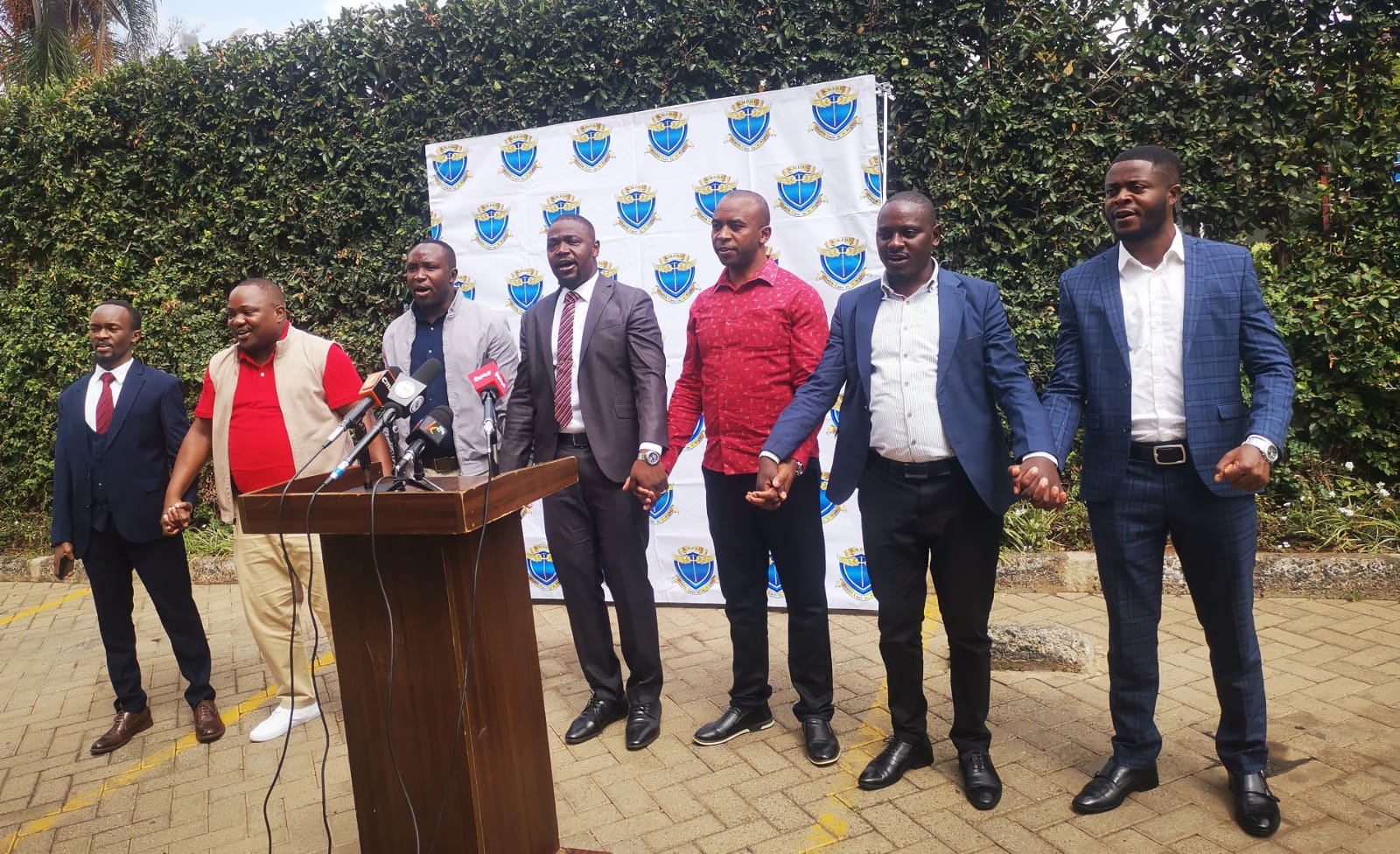Kenya’s top health unions are calling for national introspection and urgent action to curb the rising wave of violence, particularly targeting healthcare workers caught in the crossfire of recent anti-government protests.

Speaking at a press conference in Nairobi, union leaders urged the government to launch a nationwide conversation on mental health, while also calling for an end to politically instigated violence and greater restraint from security forces.
Peterson Washira, National Chairperson of the Kenya Union of Clinical Officers and Chair of the Health Union Caucus, condemned the increasing attacks on medical professionals in the wake of the Gen Z-led protests sweeping across the country.
“As health workers, we are here to ask for national introspection,” Washira said. “We’ve seen our members assaulted by goons in Nairobi, Kwale, Vihiga, and Kakamega. We must urgently address the mental health crisis affecting youth, police officers, and healthcare workers who are deeply traumatized.”
Washira also urged Health Cabinet Secretary Aden Duale to promote inclusive dialogue around the proposed Quality of Care and Patient Safety Bill. While praising the Ministry’s recent efforts—such as budgeting for Universal Health Coverage (UHC) interns, he warned against rushed legislation.
“If CS Duale continues to involve stakeholders, he will be the best CS in this regime,” he said. “But we also want to see a break from past practices where concerns were ignored and laws were forced through without adequate consultation.”
Dr. Davji Atellah, Secretary General of the Kenya Medical Practitioners, Pharmacists and Dentists Union (KMPDU), echoed these concerns, revealing he had been hospitalized for three weeks after being brutalized during a protest.
“Our hospitals are overwhelmed after every protest,” Atellah said. “We’re seeing preventable injuries and even reports of rape during demonstrations. Police brutality and infiltration by hired goons have pushed the situation beyond control.”
Atellah emphasized that while Article 37 of the Constitution guarantees the right to peaceful assembly, violence must not be tolerated. He warned that the country’s already strained healthcare system is bearing the brunt of the political instability.
“Every act of chaos puts more pressure on healthcare workers and public hospitals. We’re not just advocating for our members, but for every Kenyan affected by this violence,” he said.
Despite the challenges, Atellah acknowledged recent progress by the Ministry of Health, including the deployment of over 6,000 intern doctors without protest for the first time in years while retaining full salaries. However, he warned that Kenya still needs over 100,000 additional healthcare workers to meet World Health Organization (WHO) recommendations.
Pius Nyakundi, Secretary General of the Kenya National Union of Medical Laboratory Officers, strongly condemned politically sponsored violence and reiterated the unions’ call for national dialogue.
“Protesters have a right to demonstrate peacefully. But we’re now seeing leaders sponsor goons to attack innocent citizens. This is unacceptable,” Nyakundi said. “We urge the government to fast-track the headcount of UHC staff and harmonize salaries for workers who’ve been on contract for over five years.”
The unions’ calls come amid growing unrest across the country, as thousands of young Kenyans popularly known as Gen Z take to the streets to demand lower living costs, an end to corruption, police brutality, and enforced disappearances. While largely peaceful, the protests have at times turned chaotic, with reports of clashes between demonstrators and police, and attacks by suspected hired thugs





